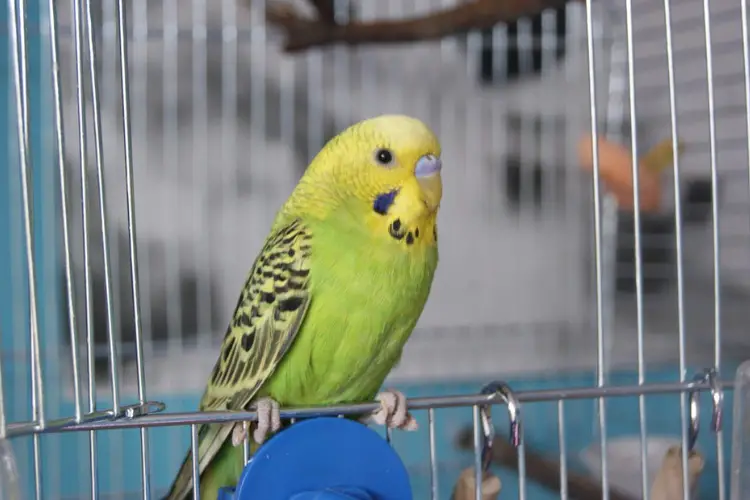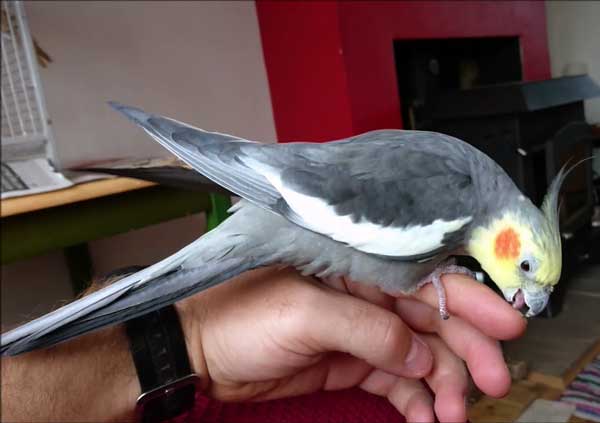Maybe you have got a new budgie as your pet from the local store or another household. Or maybe you have rescued one by chance and want to keep it as a pet. Though you might want it to make a bond with you from the very beginning, that doesn’t happen all the time.
So, is your budgie scared of you? The truth is, budgies are scared of almost everything. It is a common instinct of budgies in the wild to be scared, and this fear protects them in the wilderness. It will take time to be familiar with you and your movements.
This article will show how to determine whether your budgie is scared of you and how to resolve such situations.
Is Your Budgie Scared of You?
Fear is the first thing you will notice after a budgie enters your home. This is the general instinct of budgies to fear anything unknown. Human disturbance or predation risk might intensely scare your budgies, and you must deal with that.
You might have the same fear if someone gigantic comes by your window and stretches their scary hands to catch you. The pet budgie feels the same when you want to hold it with your hand. It senses your hand as a sign of predation and gets scared very easily.
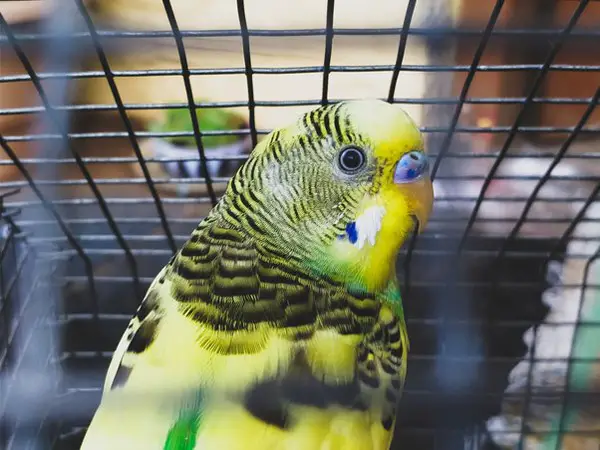
Besides, there can be other reasons behind your budgie being scared of you. Let’s discuss those reasons to understand better why budgies are scared of you.
Why Do Budgies Get Scared?
Besides instinctive issues, budgies can get scared due to other reasons. We will explore some of the reasons here.
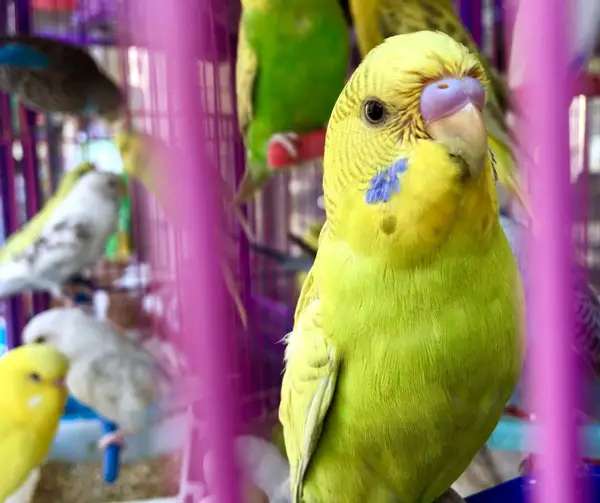
Entering a New Environment
Whether you buy a budgie from the pet store or bring it from someone else, it will show symptoms of fear once it enters the new environment. This is completely natural because new environments always threaten budgies.
As they are naturally nervous, budgies will take time to adjust themselves to the changing environment.
Movement of Other Pets
If you have cats or dogs in the same house as budgies and those pets come close to the cage, budgies can get scared. Cat is usually a predator of budgies in the vicinity. And this will make them feel threatened if the pets move around the cage or try to grab the attention of your bird.
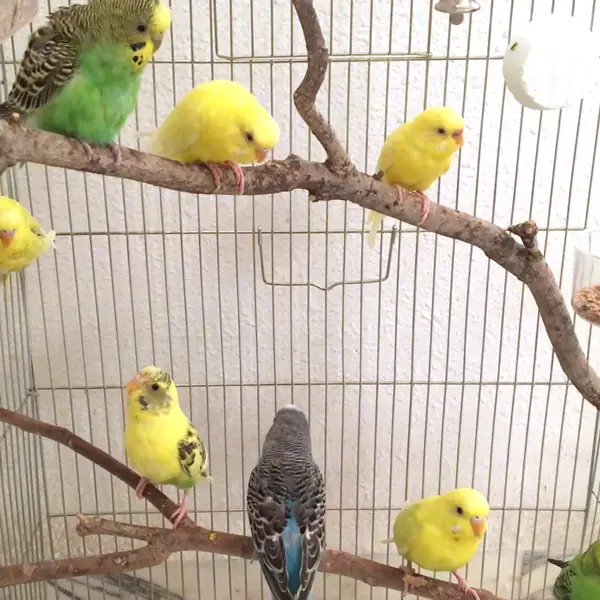
Also read: Can Budgies Eat Biscuits?
Shiny Objects Around the Cage
Shiny objects can be one of the biggest reasons for budgies’ fear. Things that reflect light can cause partial blindness to budgies, and they might get scared of those objects. If you have anything shiny around the cage, your budgie might not show its eagerness to make a bond with you.
Bright Colors
The color vision of birds is usually better than humans. Birds like budgies not only see visual light but also can see UV light. When you wear something too bright or flashy, your budgie can mistake it for aggression.
Especially, red seems to be the scariest color for budgies. So, if you wear red or other bright clothing, your budgie might get scared of you.
Extending Hands
You might have no intention to harm the budgie, but it will easily get scared if you try to extend your hands suddenly. It will take the hand as a symptom of attack and get scared in your behavior.
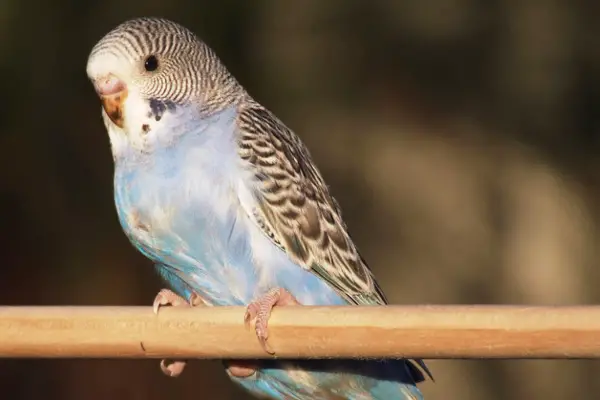
Even your hand movement around the cage can be fearful to your budgie.
Direct Eye Contact
It might get scared if you make direct eye contact with your bird. Birds take this as a sign of aggression or threat and get scared pretty quickly.
How to Determine Budgies’ Fear?
As budgies can’t express their fear through talking, how do you know whether your budgie is scared of you or not? Well, you might notice some visual symptoms when your budgie gets scared. Know about these symptoms below.
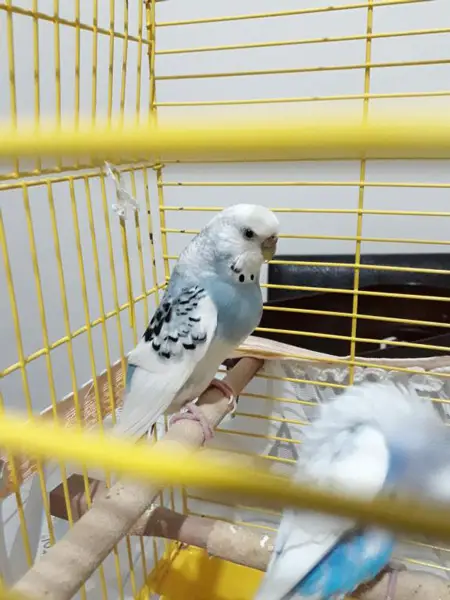
Crazy Flying or Flapping
This usually happens when you approach the cage and try to hold the budgie. Your little friend will start flying like crazy inside the cage or start flapping its wings.
Remember, it is a sign of fear, and the budgie is considering your hands a threat.
Short Breathing
When a budgie enters a new environment and is scared of its surroundings, it will probably pant to show its fear. How do you know whether your budgie is panting or not?
Its beak will be slightly open when the bird pants. The bird will seem to be out of breath if it is frightened for an extended period.
Liquid Poop
This doesn’t only happen when your budgie is scared but also when you disturb the budgie. If it suddenly gets scared or disturbed, it will excrete liquid poop.
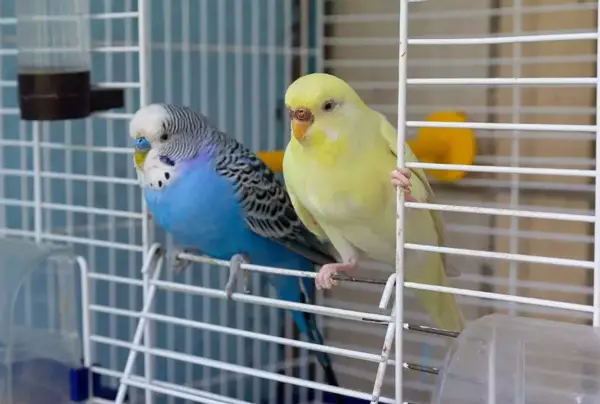
This is a clear sign of fear or disturbance and shows that you should leave the bird alone for some time. Liquid poops can happen for dietary reasons too. But in the case of fear, liquid poop will happen only a few times.
Flat Feathers
Budgies have been seen to have flat features in many tests regarding fear. One of their personality traits is to flatten their feathers when they get scared. The fear can be visual or auditory, and your budgies might respond similarly to flat features.
How to Tame a Scared Budgie?
Once you have determined the reason behind the fear of your budgie, it will be much easier to tame the bird. You can follow these tips to initiate bonding with your pet gradually.
- Never use sudden movements to approach the budgie. You should be slow while approaching the cage so that the budgie doesn’t consider you a threat.
- Don’t wear flashy colors when you get close to your pet bird.
- Instead of trying to hold the budgie in the first attempt, you need to lay your hand upside down and let the budgie jump onto it. Then, you can gradually train the budgie to sit on your fingers.
- Hold treats with your hands and slowly approach the budgie. Let it understand your hands aren’t harmful but full of sweet treats.
Related: Female Budgie Cere Color Change
FAQ
If you still have some questions in mind, check the following to get the answers.
Though the beak of your budgie might be slightly open and seem like it is trying to say something, there will be no sound from it.
When budgies come to a new environment and don’t have a sleeping routine, they might get scared of the darkness or loud noises.
As mirrors are reflective, budgies might fear them at first. But once they get accustomed to it, the fear will go away.
Final Words
Like most birds, budgies will fear almost everything in a new environment. Even the slightest movement of their owner might seem threatening to them until they know it is safe.
And when in fear, they will show symptoms so that you know your little fluffy friend is scared of you. Once you determine the reason behind your budgie being scared, you can follow the techniques mentioned above to calm the bird and bond with it.
